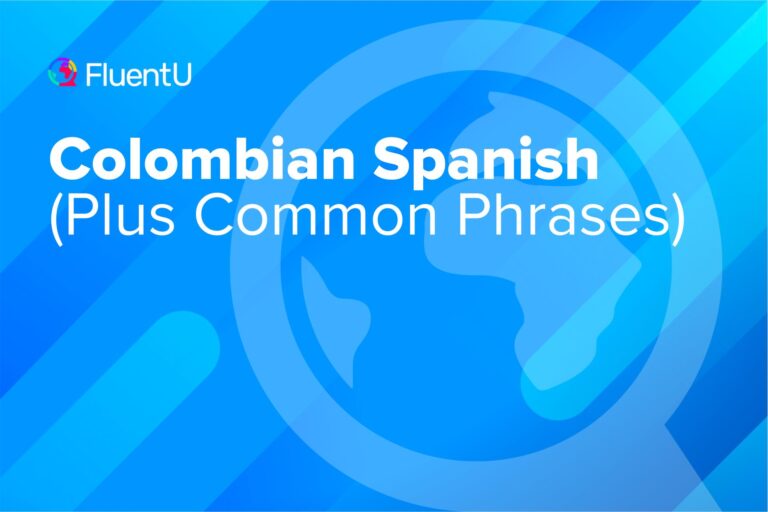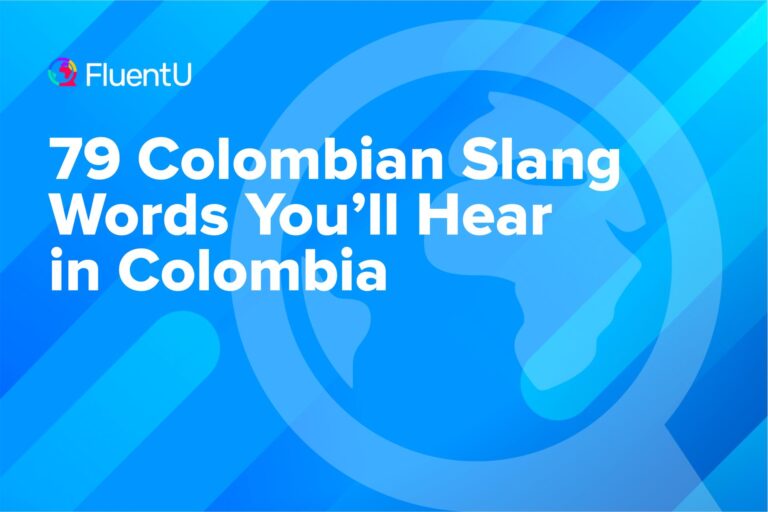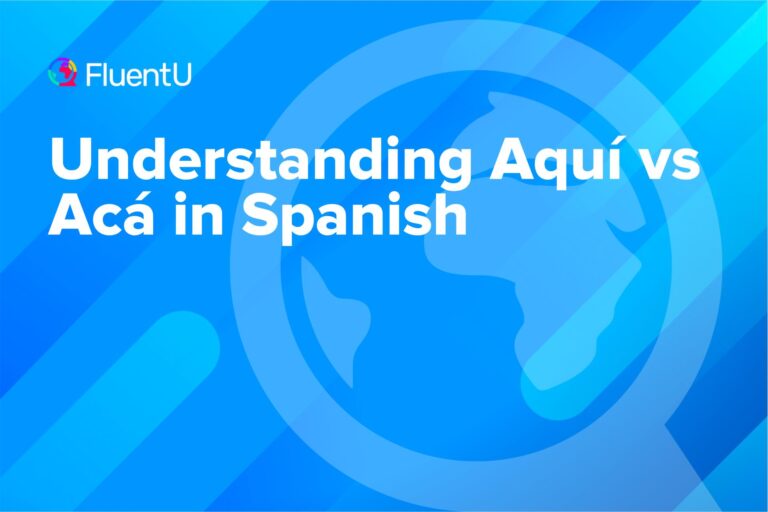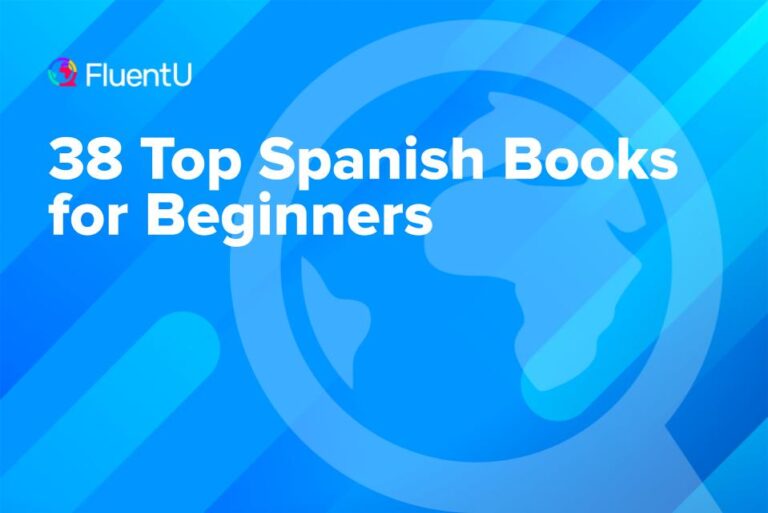Contents
- 1. Tico / Tica — Costa Rican man/Costa Rican woman
- 2. Pura vida — Hello/Goodbye/Thank you/You’re welcome (lit. “pure life”)
- 3. Mae — Dude/Guy/“Um”
- 4. Tuanis — Cool
- 5. Diay / Idiay — “Um”/Hey/And…?
- 6. Suave — Calm down
- 7. ¿Al chile? — Really?/Are you serious?
- 8. Chepe , Moncho and El Puerto — San José, San Ramón and Puntarenas (cities)
- 9. Choza / Chante — House
- 10. Despiche — A big mess
- 11. N.J. ( Nos Juimos ) — We’re outta here!
- 12. Ahí los vidrios — See you there
- 13. Mejenga — Pick-up soccer game
- 14. Jupa — Head
- 15. Ruco — Horse/Old man
- 16. Cabra — Young woman/Girlfriend
- 17. Guachimán — Watchman/Guard
- 18. Tata — Dad
- 19. Jalarse una torta — To mess up/To screw up
- 20. Rulear — To sleep
- 21. Jamar — To eat
- 22. Guaro — Booze
- 23. Una teja — 100-colones coins
- 24. Harina — Money
- 25. Lata — Bus
- 26. Brete — Work
- 27. Un blanco — A cigarette
- 28. Perico — Cocaine
- 29. Agüevado / Bostezo — Bored/Boring
- 30. Goma — A hangover
- 31. ¡Qué pichazo! — Wipe out/A big hit
- 32. ¡Qué jeta! — No way/Wow
- 33. ¡Qué chiva! — How cool!/Awesome!
- 34. ¡Qué madre! — Bummer!
- 35. ¡Qué salidas! — What nonsense!/How crazy!
- 36. ¡Qué chirotada! — How lucky!
- 37. ¡Qué guava! — What luck!
- Tú, Usted or Vos: How to Address Someone in Costa Rica
- Why Learn Costa Rican Slang?
- And One More Thing…
37 Costa Rican Slang Terms Locals Love
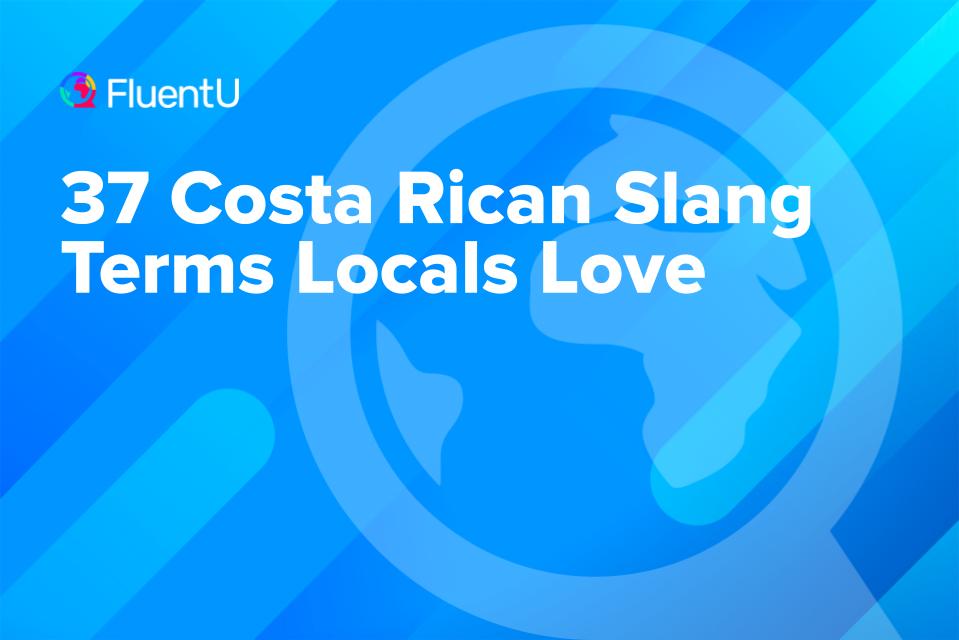
They say that Costa Rica is “The World’s Happiest Country,” and it does seem like people who visit Costa Rica return to their home countries with a stellar impression of this Central American country.
Regardless of the reason for your visit, you’ll want to know some good, authentic words that you’ll hear the locals say so you can better understand the conversations and the culture.
Download: This blog post is available as a convenient and portable PDF that you can take anywhere. Click here to get a copy. (Download)
1. Tico / Tica — Costa Rican man/Costa Rican woman
A tico is a Costa Rican man and a tica is a Costa Rican woman.
This comes from a tendency to make things diminutive by adding the suffix -tico.
For example, the word for small is chico. In other Spanish-speaking countries, people may say chiquito , or literally “little small,” I guess. The point is that, in most places, the suffixes for small things are -ito and -ita.
You’ll hear them in Costa Rica, and you’ll also hear things like chiquitico , which is just another way to describe something that’s apparently incredibly tiny. Anyhow, it seems that people in Costa Rica did that so much that this tendency gave them a national nickname.
2. Pura vida — Hello/Goodbye/Thank you/You’re welcome (lit. “pure life”)
You’ll hear pura vida used as a greeting, a goodbye or a way to say “thank you” or “you’re welcome.” It’s basically like the Costa Rican “aloha.”
It’s a positive phrase about seizing the moment and enjoying life. It can be said as a greeting, in the middle of a conversation, after you’ve said or heard someone say something exciting… it’s basically a one-size-fits-all phrase! Every Costa Rican will be delighted to hear you say this.
Still, it can be a bit confusing if you’re looking for a business named Pura Vida, since seemingly every second store in the country is named something like Pura Vida Surf Shop, Pura Vida Pet Supplies or Pura Vida Schoolbook Depository.
3. Mae — Dude/Guy/“Um”
Mae is generally used by men referring to other men, but it can occasionally be used to refer to a woman. If used to talk about a woman, though, it’s not usually a flattering reference.
Note that, if you call a male a mae, it’s also not terribly flattering. At best, it’s neutral, but it can often be negative, like the words schlub or schmo in English. Friends may use it as a jokingly-insulting term of endearment, but if you say it to someone else, it might cause trouble.
The short-lived online satirical newspaper El Pejibaye even had a column called “Mae of the Week,” which featured fictional mediocre guys who were generally unemployed and living with their grandmothers or sisters.
But that meaning of the word only accounts for maybe 20% of the times you’ll hear mae in Costa Rica. For the other 80%, it’s used mostly by young men as linguistic filler. For many of them, it’s like the Costa Rican version of the word “like,” “uh” or “um.”
If you don’t believe me, just eavesdrop on a conversation between two Costa Rican guys in their early 20s. No matter what the topic, you’ll likely hear mae more than you’ll hear words like “the.”
4. Tuanis — Cool
Another very popular Costa Rican slang word is tuanis which is often used to say “cool” or “good.”
There’s an interesting theory that tuanis is actually a weird variation on the word bueno (good) that was passed through a process to make it a kind of code word, but it’s also a slightly confusing theory.
Tuanis can be used in a similar way to another Costa Rican slang expression on this list: ¡Qué chiva! (#33) which means “How cool!” or “Awesome!”
¡Qué tuanis! (How cool!)
5. Diay / Idiay — “Um”/Hey/And…?
Diay and idiay are common Costa Rican slang words that are derived from de ahí (therefore/hence) and y de ahí (and from there/and hence), respectively.
These terms are both versatile and can be used in an array of situations, such as a pause in a conversation, a greeting and a prompt for someone to continue speaking.
You can almost get a sense of the different meanings in the following exchange between Ana and María:
Ana: ¡Diay! ¿Cómo está? (Hey! How are you?)
María: Estoy bien, gracias. (I’m good, thanks.)
Ana: Diay… ¿Sigues viviendo en El Puerto? (And…? Are you still living in Puntarenas?)
María: No, me acabo de mudar a Chepe. (No, I’ve just moved to San José.)
Ana: ¿Y su novio? ¿Ya no están juntos? (And what about your boyfriend? Are you not together anymore?)
María: Diay, no sé. Es que… (Um, I don’t know. It’s just that…)
6. Suave — Calm down
If you say this to another person in an argument, it means “calm down.” If you and a friend get into a heated exchange, you can just say ¡Suave, mae! which means “Take it easy!”
7. ¿Al chile? — Really?/Are you serious?
This phrase expresses surprise or shock in response to what someone says. It translates to “Really?” or “Are you serious?”
A: En dos semanas voy a viajar a Italia para estudiar italiano. (In two weeks I’m going to travel to Italy to study Italian.)
B: ¿Al chile? ¡Que te vaya bien! (Really? Good luck!)
8. Chepe , Moncho and El Puerto — San José, San Ramón and Puntarenas (cities)
These are nicknames for the Costa Rican cities of San José, San Ramón and Puntarenas.
Of course, many cities in many countries have different nicknames, and Costa Rican cities are no exception.
For example, Escazú, the suburb of San José, is called la ciudad de las brujas (the city of witches), but these seem a bit different. El Puerto (the port) makes sense since there’s a port in Puntarenas, but the other two are more interesting.
Chepe is the nickname for the name José and Moncho is the nickname for Ramón. So basically, they took the nicknames for the people and applied them to the cities.
9. Choza / Chante — House
If you’re chatting with a friend and he or she invites you to his or her choza or chante, then he or she is inviting you to his or her house.
10. Despiche — A big mess
This is a word that you should be very careful with, since its root, picha , is a slang word for penis.
A despiche is when everything seems to fall apart or go wrong. Basically it’s a big mess.
The phrase se despichó is used when misfortune occurs or as a way to express frustration. For example, if someone has an accident. An example for when to say it would be if you fell down skiing or surfing.
A similar word is pichazo , which could literally mean something like “a big penis.” In colloquial use, though, it means a ton of something. Un pichazo de gente would be “a bunch of people.”
It can also mean a “hit,” but we’ll get to that near the end of this article.
I wouldn’t recommend using these unless you’re really comfortable with Costa Rican slang—and with the people you’re talking to!
11. N.J. ( Nos Juimos ) — We’re outta here!
I’ve heard that the phrase nos juimos, in which a j is substituted for the f in fuimos, is common in other countries, but the Costa Rican twist is that here they also just say the two letters to abbreviate it: N.J.
Remember to pronounce the letters in Spanish (like “en-ay hota”).
12. Ahí los vidrios — See you there
The above phrase is another way to say “see you there.” For example, if someone asks you to meet him or her at the movie theater at five, you could say Ahí los vidrios to confirm.
A: ¿Entonces nos vemos en el cine a las 5 de la tarde? (So we’ll meet at the movie theater at 5 p.m.?)
B: Ahí los vidrios. (See you there.)
13. Mejenga — Pick-up soccer game
Mejenga means a pick-up soccer game or informal soccer game among friends.
Nearly every weekend or weeknight evening, you’ll see many ticos—both maes and non-maes alike—getting together for a mejenga, either at an outdoor field or, if it’s during the September-December rainy season, indoors on artificial turf.
14. Jupa — Head
This is a term that means “head.” If someone is stubborn, that person may be called jupón (big head).
Since you remember your Spanish pronunciation, this is pronounced “hoopa,” and you may hear it in a phrase like me golpeé la jupa (I banged my head).
Another example for when to use this would be if you went out for a long night of clubbing and had a throbbing headache. You could say ¡tuve un dolor de jupa enorme anoche!
15. Ruco — Horse/Old man
This is a Costa Rican word for “horse.” It can also be used to refer to an old man, especially an old bachelor.
To be honest, I had never heard this word until I asked around for good slang words, and I even live in a place where people still ride horses. But a few people I interviewed insisted that I include this word in the list, so here you go!
16. Cabra — Young woman/Girlfriend
Cabra literally means “goat” in Spanish, but it’s also a slang term that some men in Costa Rica use to refer to their girlfriends or young women.
17. Guachimán — Watchman/Guard
If you pronounce this slowly, it sounds a bit like “watchy-man,” right?
Well, that’s exactly what this word means, and it’s even a bit of a deviation from an “Englishy” phrase.
If you go to any city or even medium-sized town in Costa Rica, you’re likely to come across a guachimán or two. They’re the guys who watch parked cars in exchange for some spare change. Some are more formal about it, even wearing a reflective chaleco (vest), and others may have just shown up right before you got back to your car, since they saw you coming.
I believe this word, or a variation of it, may be used in other parts of Latin America, but I still wanted to leave it in because it’s just such a great word. Plus, if you rent a car here, you’ll likely come across more than one guachimán.
18. Tata — Dad
In Costa Rica, tata means “father.” Presumably, it’s easy for even infants and toddlers to say, but it’s still used by grown adults to refer to their fathers.
19. Jalarse una torta — To mess up/To screw up
Literally, this phrase means “pull a torte” or “pull a cake,” but it’s an idiom that means to do something dumb or regrettable. It’s basically like “mess up” or “screw up.”
If you hear ellos se jalaron una torta y ella quedó embarazada , then you’ll be able to catch the figurative meaning of this phrase.
20. Rulear — To sleep
This verb is another way to say “to sleep” and can directly replace dormir.
Estoy muy cansada. Quiero rulear pero solo son las 7 de la tarde. (I’m very tired. I want to sleep but it’s only 7 p.m.)
21. Jamar — To eat
Jamar can directly replace comer to say “to eat.”
¿Quiere algo para jamar? Voy a ir a comprar un café y un arreglado. (Do you want something to eat? I’m going to go buy a coffee and a sandwich.)
22. Guaro — Booze
This word usually denotes alcohol made from sugar cane, but it can also be used to refer to any kind of alcohol, kind of like the word “booze” in English.
A typical type of guaro in Costa Rica is the brand Cacique, a word which actually means “chief.” But Costa Rica also makes its share of rum, another kind of booze made from sugar cane.
23. Una teja — 100-colones coins
A teja is a word for a roof tile, but in Costa Rica it’s also used to refer to 100-colones coins. Don’t forget, the currency in Costa Rica is the Costa Rican colón, and Colón is the Spanish name for “Columbus,” as in the (in)famous sailor, Christopher.
In the past, the phrase una teja was used to refer to 100-colón bills, but now the same word is used to refer to the coin.
Costa Ricans also use different slang words to refer to other denominations of bills. For example, un rojo (a red one) is a 1,000-colones bill (since it’s red), and you may hear a 5,000-colones bill referred to as un tucán (a toucan) because the old 5,000-colones bill had a toucan on the back. The new bill, which was introduced a few years ago, actually has a monkey on it, but you don’t really hear people asking for their buddies to loan them un mono (a monkey) so they can buy some guaro.
Finally, La Teja is a trashy daily “newspaper” that’s published throughout Costa Rica. I believe it was given that name because it originally cost 100 colones, but in the meantime the price is now at 250 colones (around $0.47 USD).
24. Harina — Money
Harina directly translates to “flour” from Spanish to English, but it can also be used as a slang term for money in Costa Rica. So unless your neighbor next door pops over to ask for some to use in her cookies, you can assume that when someone asks for harina, he or she is requesting cash.
¿Me puede prestar un poco de harina? La tienda no acepta pagos con tarjeta y el banco está cerrado. (Can you lend me some money? The store doesn’t accept card payments and the bank is closed.)
25. Lata — Bus
Perhaps this is another word you recognize, as it translates to “can” in English. However, if someone says that they take the lata to work, they actually mean the bus—they don’t take a can to work.
Tengo que agarrar la lata e ir a Chepe mañana. (I have to catch the bus and go to San José tomorrow.)
26. Brete — Work
If someone says they have to go to brete instead of spend time with you, it means he or she has to go to work.
27. Un blanco — A cigarette
In Costa Rica, un blanco is a cigarette, which is important to know in case anyone ever requests un blanco from you.
¿Me da un blanco? (Can you give me a cigarette?)
28. Perico — Cocaine
Perico means “parakeet” in Spanish but in Costa Rica, they also use it as a term for cocaine. So, be careful if someone there offers you perico—they might not be offering you a colorful pet bird but something else entirely…
29. Agüevado / Bostezo — Bored/Boring
Both agüevado and bostezo mean “bored” or “boring.”
For example, if your new teacher causes you to yawn incessantly in class, you could say mi maestra nueva es muy agüevada.
Similarly, agüevado can also mean “sad”: Me siento un poco agüevado hoy. (I’m feeling a little down today.)
30. Goma — A hangover
Goma means “hangover” or “hungover” in Costa Rica. You may hear something like Tengo (una) goma (I have a hangover) or Estoy de goma (I’m hungover).
The word goma can also mean “gum,” although not like chewing gum (that’s chicle ), but instead any gummy substance.
Every Spanish-speaking country has its own slang term(s) for hangovers—goma is just one of them!
31. ¡Qué pichazo! — Wipe out/A big hit
As you probably remember from #10 above, a pichazo can mean a “big penis,” but it can also be used to refer to a beating, a hit, people fighting or even just getting hurt in general. It’s sort of like the phrase “wipe out” when talking about surfing. You can find a few YouTube videos with this exact title.
You can also use it as a verb. If you get beat up, you can say me pichacearon , which would mean something like “I got my butt kicked,” only a bit more vulgar.
32. ¡Qué jeta! — No way/Wow
The word jeta is a slang word for “face” or “snout,” so in some contexts, this can mean something like “what cheek,” as in the person is being insolent.
But more commonly it’s used to mean something like “Yeah, right,” “No way” or “Wow.” “Wow” is probably the closest equivalent, since you can also use inflection and context to give it different meanings.
33. ¡Qué chiva! — How cool!/Awesome!
Literally speaking, a chiva would be the female form of chivo , or “goat.”
But usually this phrase means “How cool!” or “Awesome!” If you’re familiar with Mexican slang, it’s basically the same as ¡Qué chido! there.
Also note that chiva is pronounced like “cheeba.”
34. ¡Qué madre! — Bummer!
One of the first Spanish words you probably learned was madre , or “mother.” But in this context, mother has gone bad.
¡Qué madre! means “Bummer!” I’m not sure where madre got its negative connotation, but the word desmadre is similar to despiche (see #10) or, in other words, a chaotic situation. If you call someone la pura madre , it can be something like “a pain in the butt.”
35. ¡Qué salidas! — What nonsense!/How crazy!
A salida is a departure, so you could be excused for thinking this has to do with the airport. But it actually means “What nonsense!” or “How crazy!”
The verb salir can be used sometimes to mean “come up with,” as in Él sale con cada cosa (Literally, “He leaves with such things,” but it means more like “He comes up with the strangest things”). So in this case salidas is used to mean strange ideas.
36. ¡Qué chirotada! — How lucky!
In Costa Rica chirotada can mean “luck” or “happiness,” so if you say ¡Qué chirotada! you may be exclaiming because you found a rojo on the street.
Of course, like so many other things, this can also refer to genitalia. I included this one because my wife told me a story about a guy in our town who had a run-in with a mean dog. He later exclaimed ¡Ese perro casi me arrancó la chirotada! (That dog almost bit off my junk!)
37. ¡Qué guava! — What luck!
Similar to the phrase above, ¡qué guava! means “what luck!”
A good time to use this would be if you were running late and managed to catch the bus just as it was about to leave.
Tú, Usted or Vos: How to Address Someone in Costa Rica
Now that you’ve learned the most common Costa Rican slang words, it’s important to know how to address someone when using these terms in your conversations.
Even if you think you’re pretty close with someone in Costa Rica, it’s still better to refer to him or her as usted. In fact, tú is rarely used. In Costa Rica, you’ll likely hear usted more than any other form, even if the relationship isn’t formal in any sense of the word.
In some areas of Costa Rica, such as the capital San José, you’ll hear vos .
Perhaps you’re unfamiliar with vos, but it’s similar to tú and is very common in Central and South American countries. Conjugations using vos are a bit different but you can easily learn them!
Of course it’s not always easy switching between formal and informal on the fly, but don’t fret. It’s perfectly safe and acceptable for foreigners to speak using only tú (or any other form with which you’re comfortable).
Why Learn Costa Rican Slang?
Well, we’ve already learned about Cuban, Ecuadorian, Argentinean, Chilean, Spanish and Mexican slang, and you’ve probably even picked up some good slang for sending text messages in Spanish.
But if you’re visiting Costa Rica, a lot of those phrases from other countries are so different they might as well be in Portuguese—what you need is Costa Rican slang!
As a language teacher myself, I often wonder if it’s a good idea to teach or learn slang words. Slang changes so often, and certain words can be relegated to only certain times and places. Just imagine an English learner using words like “groovy” and “the bee’s knees.” It’s not that they’re not real expressions, or that we wouldn’t understand them, but they sound old-fashioned.
The best way to avoid this is to learn the right slang for right now. If you don’t know it, you simply might not understand what your Costa Rican friends have to say!
Like the slang-loving man in the video above, Costa Ricans are indeed well known for being friendly and welcoming to tourists and new people, and if you can speak Spanish, you’ll have an even easier time fitting in.
Furthermore, if you can understand or even use a few of these Costa Rican slang words, you’ll likely get a positive reaction from most Costa Ricans!
So, you can go ahead and use these words if you want. If you’re a bit too timid to try them yourself, you can learn them just to be sure that you understand them. The more you know, the better off you’ll be.
I’ve lived in Costa Rica for nearly 10 years, but I have to admit that I don’t use several of these myself. It’s just not my style. However, I do feel like it’s been very helpful to understand what they mean, since people do use them all the time.
I ran all of these words by multiple Costa Ricans and most people mentioned the majority of the words on our list today. Quite a few of the words that people suggested are also used outside of Costa Rica, so most of those particular words aren’t on this list. Instead, we’re trying to keep this as specifically Costa Rican as possible, although that doesn’t mean that you’ll never hear any of these words outside of the country.
If you still aren’t sure when to use some of these terms, the FluentU program has Spanish videos that show vocabulary in use naturally.
FluentU takes authentic videos—like music videos, movie trailers, news and inspiring talks—and turns them into personalized language learning lessons.
You can try FluentU for free for 2 weeks. Check out the website or download the iOS app or Android app.
P.S. Click here to take advantage of our current sale! (Expires at the end of this month)

If you’ve enjoyed learning these Costa Rican slang words and would like to learn more, check out these posts for more slang from other Spanish-speaking countries!
- Argentinian slang
- Bolivian slang
- Chilean slang
- Colombian slang
- Cuban slang
- Dominican slang
- Ecuadorian slang
- Guatemalan slang
- Honduran slang
- Mexican slang
- Nicaraguan slang
- Panamanian slang
- Paraguayan slang
- Peruvian slang
- Puerto Rican slang
- El Salvadorian slang
- Uruguayan slang
- Venezuelan slang
So there you have it: you’re fully equipped for your next conversation with some ticos.
Whether you want to have a friendly chat with a guachimán over a glass of guaro at a bar in Moncho, or make a passing comment when you see two maes knock their heads together during a mejenga, you should be able to hold your own.
Good luck, and… ¡pura vida!
Download: This blog post is available as a convenient and portable PDF that you can take anywhere. Click here to get a copy. (Download)
And One More Thing…
If you've made it this far that means you probably enjoy learning Spanish with engaging material and will then love FluentU.
Other sites use scripted content. FluentU uses a natural approach that helps you ease into the Spanish language and culture over time. You’ll learn Spanish as it’s actually spoken by real people.
FluentU has a wide variety of videos, as you can see here:

FluentU brings native videos within reach with interactive transcripts. You can tap on any word to look it up instantly. Every definition has examples that have been written to help you understand how the word is used. If you see an interesting word you don’t know, you can add it to a vocab list.

Review a complete interactive transcript under the Dialogue tab, and find words and phrases listed under Vocab.

Learn all the vocabulary in any video with FluentU’s robust learning engine. Swipe left or right to see more examples of the word you’re on.

The best part is that FluentU keeps track of the vocabulary that you’re learning, and gives you extra practice with difficult words. It'll even remind you when it’s time to review what you’ve learned. Every learner has a truly personalized experience, even if they’re learning with the same video.
Start using the FluentU website on your computer or tablet or, better yet, download the FluentU app from the iTunes or Google Play store. Click here to take advantage of our current sale! (Expires at the end of this month.)
